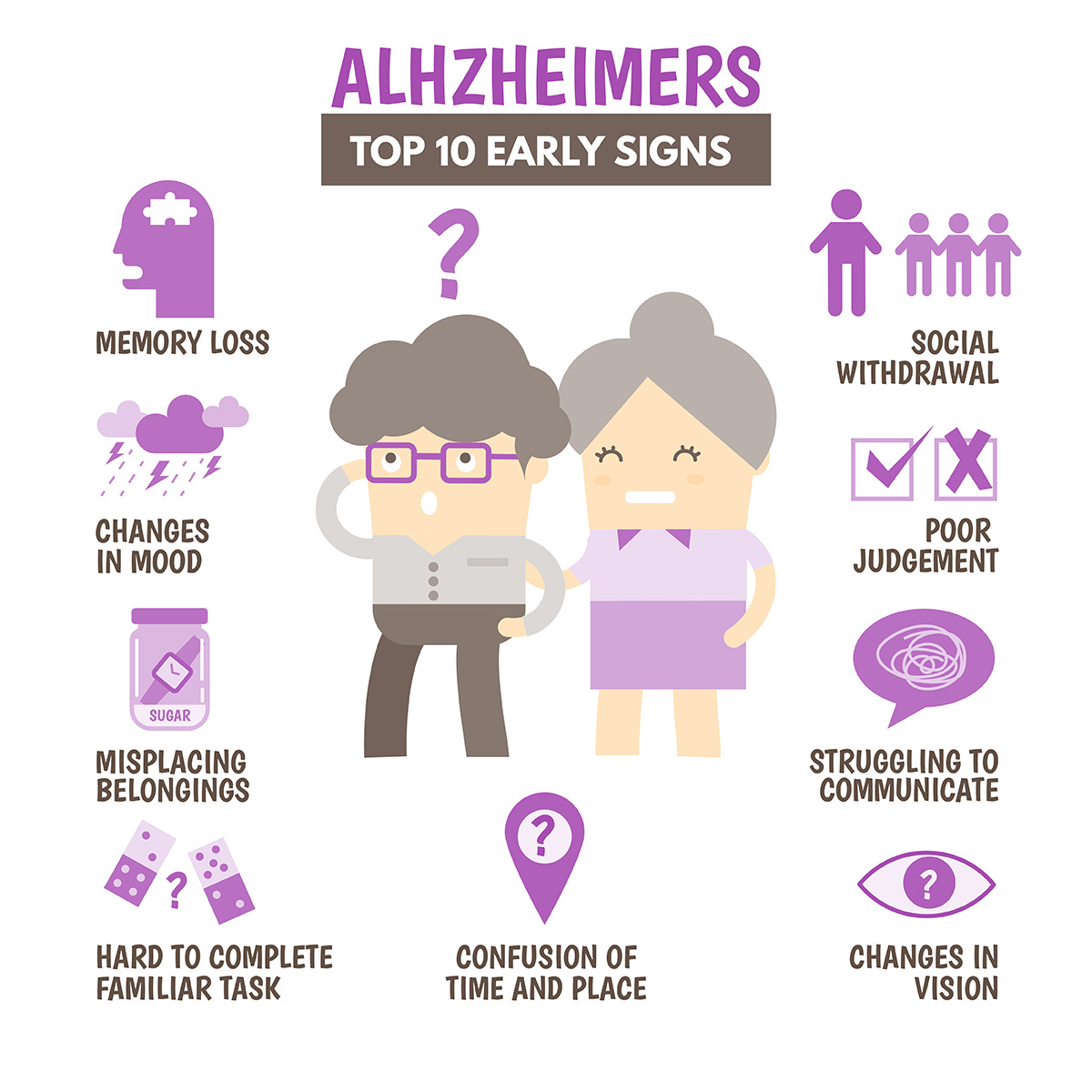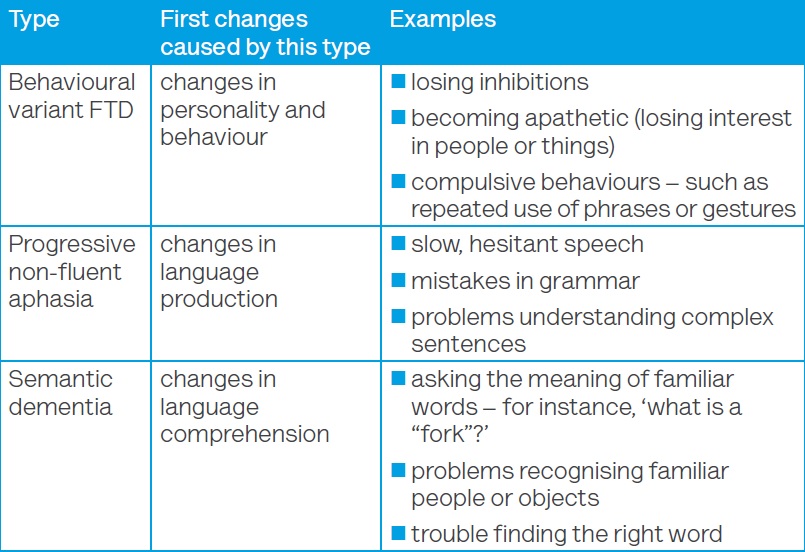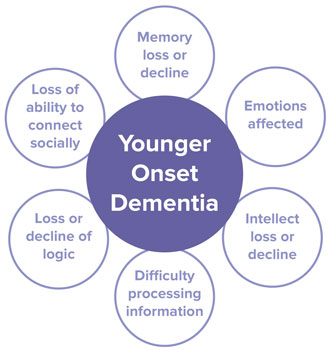Traveling Tips When Supporting Someone With Early Onset Dementia
Traveling Tips When Supporting Someone With Early Onset Dementia
Blog Article
Understanding the Impact of Dementia on Every Day Life and Caregiving
Mental deterioration affects day-to-day life in profound means, affecting not simply those diagnosed but also their caretakers. As cognitive decrease progresses, you could see adjustments in communication and routine that difficulty both events.
The Stages of Dementia and Their Impacts on Daily Life
As you navigate the trip of mental deterioration, comprehending its phases can substantially impact just how you manage life. Mental deterioration generally advances via 3 major stages: early, middle, and late. In the onset, you could notice occasional memory lapses or problem discovering the appropriate words. This can lead to stress, but recognizing these indications early assists you adapt your regular and look for assistance.
Throughout the middle stage, you'll experience a lot more visible cognitive decline. Daily jobs could come to be tough, and preserving your self-reliance may need modifications. Utilizing pointers and simplifying your environment can assist.
In the late phase, people commonly require significant assistance with day-to-day tasks. Planning for care ends up being necessary, concentrating on convenience and top quality of life. By recognizing these phases, you're far better equipped to respond proactively, guaranteeing you or your enjoyed one can navigate the challenges with self-respect and poise.

Changes in Communication and Social Interaction
Exactly how do adjustments in communication affect your everyday interactions as dementia advances? As dementia breakthroughs, you could see that simple conversations become challenging. Words might leave you, or you might battle to find the right phrases. This can lead to stress for both you and your enjoyed ones. Nonverbal signs, like motions or faces, come to be increasingly essential.
You might find it much easier to link through these means rather than relying solely on spoken language. Listening skills can also alter; you might locate it harder to adhere to conversations or bear in mind what was just said (Frontotemporal Dementia). This can result in misunderstandings or feelings of isolation
Urging patience and producing a supportive setting can assist. Engaging in activities that promote connection, like music or art, can boost social communications. Remember, preserving partnerships is still possible; it's nearly adjusting to new methods of interacting.
Effect On Daily Routines and Activities
While navigating day-to-day routines, you'll likely notice that tasks you as soon as completed easily ended up being extra tough as dementia progresses. You might find on your own forgetting actions in acquainted regimens or battling to remember where you put products.
Preparation your day can feel overwhelming, making it more challenging to adhere to a timetable. You might require reminders for appointments or to take medicines. Adjusting your setting can aid; for example, labeling items or making use of lists can streamline jobs. Engaging in recurring, structured activities can additionally supply convenience and a sense of accomplishment. Remember, it's alright to request assistance. Bordering on your own with supportive pals or family can make managing these adjustments a little bit simpler.
Behavior and psychological Obstacles
Guiding with daily regimens can produce not just sensible difficulties, but additionally emotional and behavior ones. You might discover changes in mood, such as raised anxiousness or aggravation, which can originate from confusion or difficulty in finishing jobs. As you browse these moments, it is crucial to recognize that your liked one might express their feelings with behaviors like frustration or withdrawal.
These emotional actions can be unpredictable and may emerge without warning, leaving you both feeling bewildered. You could find that familiar settings or routines can help in reducing stress and anxiety, yet maintaining persistence becomes considerable. It is vital to verify their sensations, even if you do not totally comprehend them.
The Duty of Caregivers in Supporting People With Dementia
As a caretaker, you play a crucial function in giving emotional support for individuals with mental deterioration. Developing daily treatment regimens can create a feeling of security and convenience, assisting to relieve their stress and anxiety. By comprehending their needs and utilizing efficient techniques, you can greatly boost their lifestyle.
Psychological Assistance Techniques
When caring for someone with mental deterioration, recognizing the psychological landscape is vital for supplying efficient support. You'll frequently find that patience and empathy go a lengthy means. Verify their feelings; if they reveal confusion or irritation, recognize it without disregarding their feelings. Easy gestures, like holding their hand or preserving eye call, can develop a complacency. Try to engage in tasks that they take pleasure in, as this can stimulate delight and link. Bear in mind to interact clearly and gradually, utilizing a calm tone. Urge expression via songs or art, which can work as an effective electrical outlet. Eventually, don't neglect to take treatment of your own psychological demands; looking for support for yourself can enhance your capacity to take care of them.
Daily Treatment Routines
Establishing day-to-day treatment regimens is vital for giving stability and convenience to individuals additional reading with mental deterioration, as these routines can help in reducing complication and anxiety. You can start by laying out a consistent routine for dishes, activities, and rest. This predictability aids your loved one feel more safe and secure and involved.
Incorporate acquainted jobs, like folding laundry or watering plants, which can stimulate positive memories and cultivate a sense of success. Use aesthetic signs, such as checklists or schedules, to lead them with the day.
Be flexible, though; adapt regimens as required based upon their mood or power degrees. Vascular Dementia. Bear in weblink mind, your persistence and understanding are crucial in maneuvering their transforming requirements, ensuring they feel supported and valued throughout their life
Producing a Safe and Comfy Living Setting
Developing a comfy and secure living setting is important for individuals with dementia. You'll wish to make home security adjustments that decrease dangers and ensure experience to offer a sense of comfort. By concentrating on these aspects, you can help create a space that supports both safety and security and health.
Home Safety Modifications
As you browse the challenges of mental deterioration, making home safety adjustments can considerably boost convenience and protection. Tag crucial locations, such as the shower room and cooking area, with clear indicators to aid with alignment. These adjustments not only promote safety but additionally motivate self-reliance, allowing your liked one to really feel more at simplicity in their atmosphere.
Convenience and Familiarity
After making sure a risk-free atmosphere with necessary adjustments, promoting comfort and familiarity is vital for individuals with dementia. Keep a regular regular to assist them feel grounded and reduce anxiety. Involving in acquainted tasks, such as paying attention to music or gardening, can enhance their feeling of belonging, making their living environment a true refuge.
Approaches for Efficient Caregiving and Support
While steering the difficulties of dementia treatment can really feel overwhelming, executing efficient techniques can significantly boost both the caregiver's and the patient's day-to-day experience. Begin by establishing a regimen; predictability helps lower Discover More Here stress and anxiety for both you and your loved one. Usage clear, basic communication-- brief sentences and direct inquiries can avoid confusion.

Don't neglect to deal with yourself; routine breaks and get in touch with support system. Sharing experiences with others in similar scenarios can give beneficial understandings and psychological relief.
Lastly, continue to be individual and versatile. Dementia can bring uncertain modifications, so adapting your approach is essential. By using these approaches, you can promote a more favorable atmosphere that profits both you and your liked one.
Frequently Asked Inquiries

What Are the Different Kinds Of Dementia?
You'll find several kinds of dementia, consisting of Alzheimer's, vascular mental deterioration, Lewy body mental deterioration, and frontotemporal mental deterioration. Each kind impacts memory and cognitive function in different ways, so recognizing the differences is essential for correct medical diagnosis and treatment.
How Can I Help Somebody With Early-Stage Mental Deterioration?
You can aid someone with early-stage dementia by being client, using assistance, and urging them to involve in tasks they delight in. Keeping regimens consistent and keeping open communication can also make a substantial distinction in their daily life.
Exist Financial Resources Available for Mental Deterioration Care?
Yes, there are financial sources offered for mental deterioration treatment. You can check out government aid programs, not-for-profit organizations, and insurance alternatives. It's likewise a good idea to speak with local firms for particular sources tailored to your scenario.
What Legal Considerations Should Caregivers Be Aware Of?
As a caretaker, you ought to take into consideration power of attorney, medical care proxies, and guardianship legislations. It's important to recognize the legal rights and responsibilities you hold, guaranteeing your loved one gets ideal care and defense.
How Can I Manage Caregiver Anxiety?
You can handle caregiver stress and anxiety by prioritizing self-care, looking for assistance from close friends or groups, setting practical expectations, taking breaks, and exercising leisure techniques. Keep in mind, your health matters equally as long as the individual you're caring for.
Comprehending the Effect of Mental Deterioration on Daily Life and Caregiving.
As you navigate the journey of dementia, recognizing its phases can significantly influence how you handle everyday life.While steering day-to-day regimens, you'll likely see that tasks you as soon as completed effortlessly ended up being much more challenging as dementia proceeds.Developing day-to-day treatment regimens is vital for giving security and convenience to people with mental deterioration, as these routines can help reduce confusion and stress and anxiety.While navigating the difficulties of mental deterioration treatment can really feel frustrating, carrying out reliable approaches can greatly improve both the caregiver's and the patient's daily experience.
Report this page